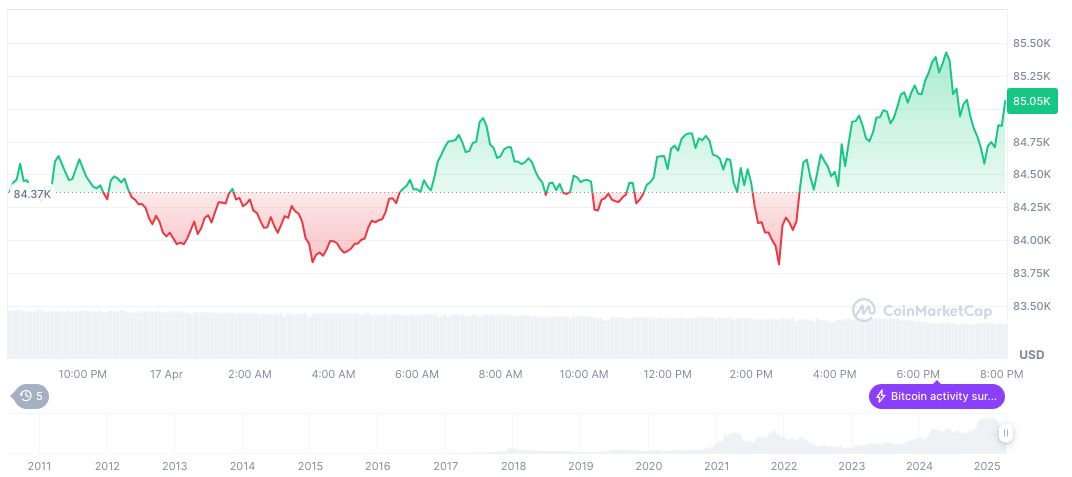- The Arizona House passes a bill to create a digital asset reserve fund, now pending governor’s approval.
- SB 1373 outlines management of seized digital assets by Arizona’s treasurer.
- Governor Hobbs plans to veto legislation pending disability funding resolution.
Arizona’s House of Representatives has advanced SB 1373, a bill establishing a digital asset strategic reserve fund, to the governor’s desk. If enacted, this fund will manage digital assets seized through criminal proceedings, under the state’s treasurer’s oversight.
Arizona’s Crypto Management Enters New Legislative Phase Senator Mark Finchem sponsored SB 1373, which proposes creating a fund comprised of digital assets confiscated in legal cases, supplemented by legislative appropriations. The bill aims to introduce a new asset management strategy for Arizona, emphasizing potential synergies with other cryptocurrency-related legislative efforts. The bill’s immediate impact hinges on Governor Katie Hobbs’ decision. She has suggested vetoing bills until a disability funding issue is resolved, complicating the potential enactment of SB 1373. Julian Fahrer, a prominent crypto advocate, expects the bill to pass but sees possible amendments or integrations with related proposals.
Potential Impacts on State Economics and Governance
Did you know? Arizona’s move to create a digital asset reserve fund reflects a growing trend among U.S. states, paralleling previous initiatives in states like Utah and Texas, which have flirted with integrating Bitcoin into public finances.
Bitcoin (BTC) commands a $1.68 trillion market cap, with a price of $84,491.84 as reported by CoinMarketCap. Its 24-hour trading volume was $16.65 billion, marking a 34.85% decline. BTC’s market dominance stands at 62.99%, with the price showing a slight decline over 24 hours.
The Coincu research team notes potential shifts in crypto regulation within Arizona, which could position the state as a forerunner in public financial governance through crypto assets. This initiative aligns with broader market trends towards legitimizing cryptocurrency in government finance strategies.
Market Data and Future Insights
Did you know? Arizona’s move to create a digital asset reserve fund reflects a growing trend among U.S. states, paralleling previous initiatives in states like Utah and Texas, which have flirted with integrating Bitcoin into public finances.
Bitcoin (BTC) commands a $1.68 trillion market cap, with a price of $84,491.84 as reported by CoinMarketCap. Its 24-hour trading volume was $16.65 billion, marking a 34.85% decline. BTC’s market dominance stands at 62.99%, with the price showing a slight decline over 24 hours.

The Coincu research team notes potential shifts in crypto regulation within Arizona, which could position the state as a forerunner in public financial governance through crypto assets. This initiative aligns with broader market trends towards legitimizing cryptocurrency in government finance strategies.























